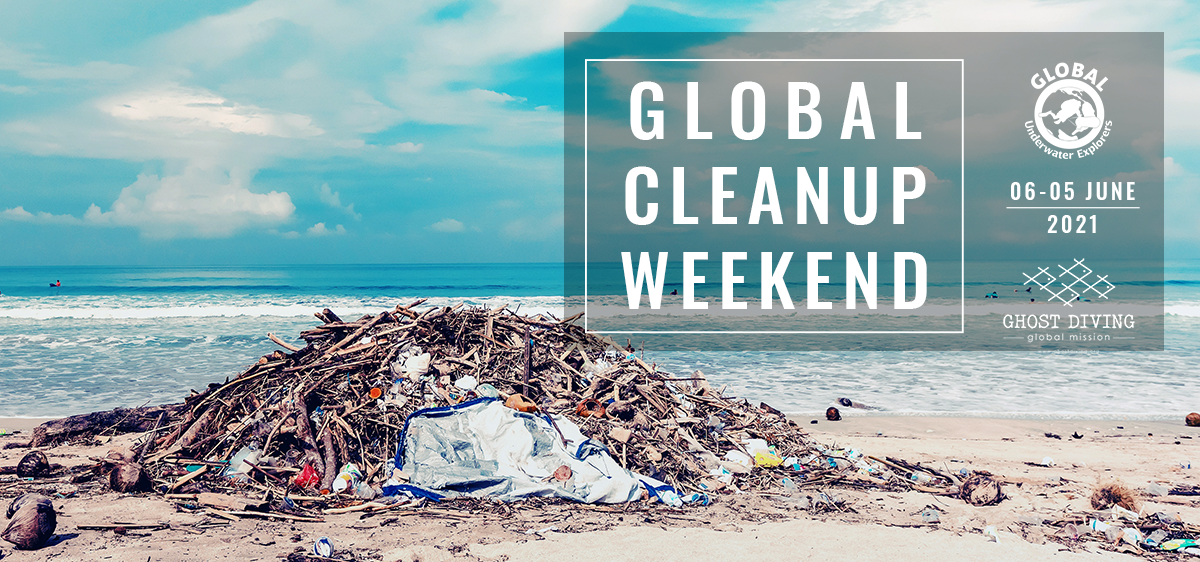2021 Global Cleanup Weekend
Global Cleanup Weekend June 5-6, 2021
Trash has become a big problem, and the pandemic is making it worse. Join us and Ghost Diving Global on June 5th-6th for a worldwide aquatic cleanup event to honor World Oceans Day. Grab some folks in your local community and head to your closest body of water for a cleanup dive or a shoreline cleanup
Ocean Trash Facts
- Fact 1: According to a University of Georgia study, 18 billion pounds of plastic trash winds up in our oceans each year. To put that in perspective, this is enough trash to cover every foot of coastline around the world with five full trash bags of plastic.
- Fact 2: 80% of trash in the ocean is from land-based sources, including individuals, industry, and improper waste management/infrastructure. Only 20% is the result of ocean-based sources, such as the fishing, shipping, and cruise ship industries.
- Fact 3: Ocean pollution kills more than one million seabirds each year.
- Fact 4: A 2018 survey found that ocean pollution is more common in deep waters (more than 613 m/2,000 ft deep); the most common offenders are plastic bags, tires, metal cans, glass bottles, fishing equipment, and shoes.
- Fact 5: Research estimates anywhere from 15 to 51 trillion particles of floating micro plastic are in our oceans, weighing between 93-227 million kg/205-520 million lbs. This includes plastic microbeads (used as exfoliants in some personal care products) and synthetic fibers, both of which are too small to be filtered out by many wastewater treatment plants.
How to Participate
Regardless of which option you choose:
- Please register for the event so we can send you some materials for recording your efforts.
- During your cleanup, share photos or videos using #GUEvTrash on Facebook or Instagram.
- After your cleanup is over, you’ll be asked to submit a form telling us how much trash your team collected (in kg or lbs), how many people were on your team, and where your cleanup took place.
Doing Our Part for the Future
What can you do outside of the June 5th-6th cleanup to reduce your everyday plastic pollution?
- If you see trash, pick it up and dispose of it correctly.
- Bring a reusable bag for shopping.
- Purchase self-care products that have compostable packaging.
- Choose products that do not contain microbeads (toothpastes, face scrubs, etc.).
- Reuse plastic packaging as many times as you can. Recycle rather than throw away.
- Avoid products with excessive packaging.
- Educate those around you and don’t be afraid to talk trash to your friends, family, and community. If people are unaware of a problem, they don’t know that they need to fix it.
Plastics are only one of the many issues facing the health of our oceans, rivers, lakes, springs, and caves. To make a difference, we need to perform a number of small actions. But, in order to make an even greater difference, and to keep our waters diveable, we also need to get involved, using our voices to influence the actions of businesses and governments.


